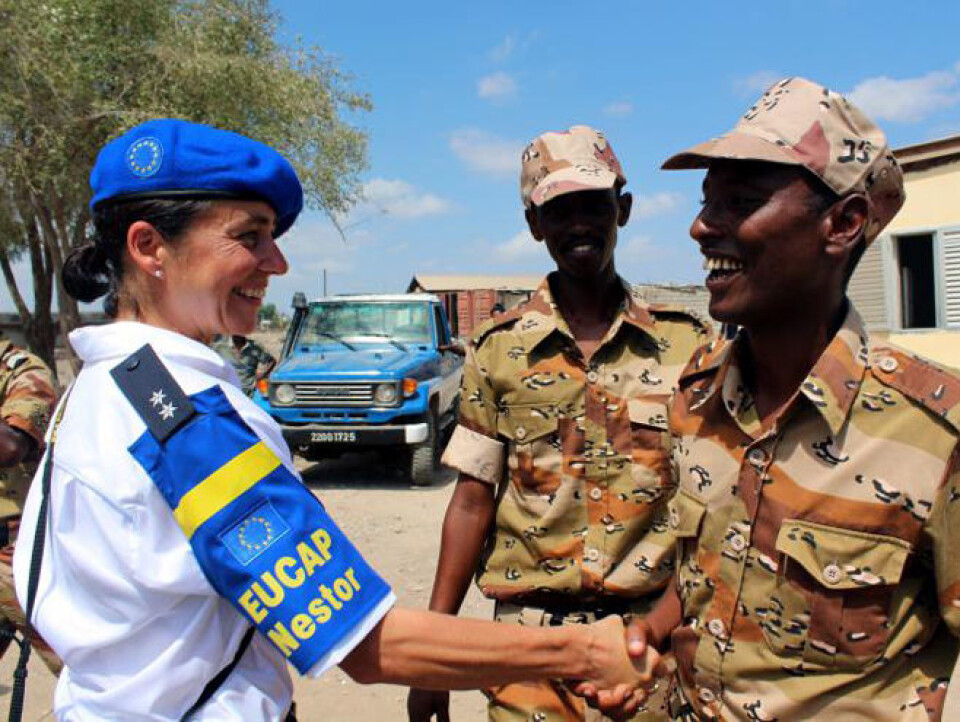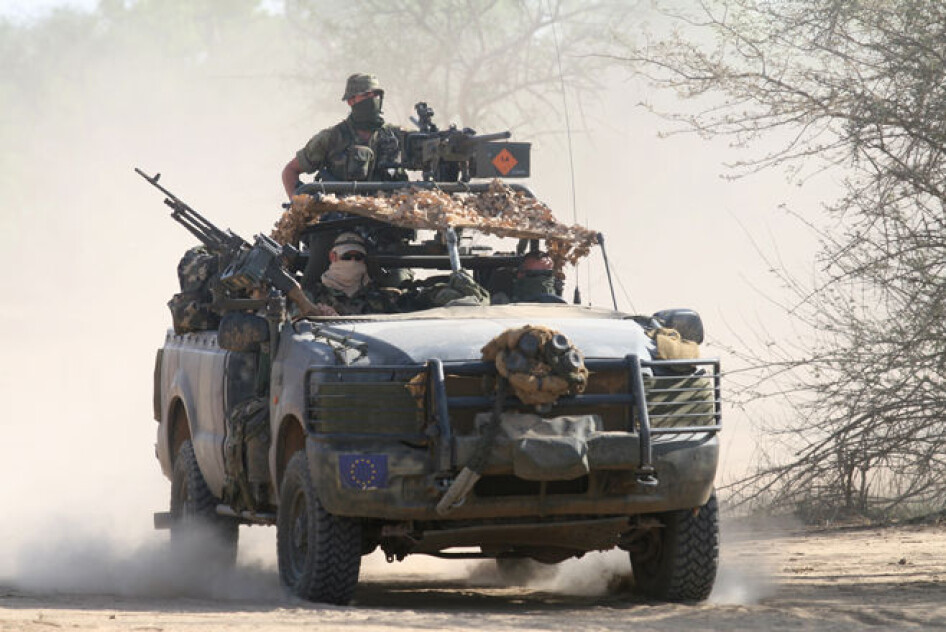
A critical look at the EU's approach to peacekeeping
The EU has been commended for its engagement with women and the local indigenous population in its mission in Chad. However, from a postcolonial perspective, it can be argued that the EU's personnel displayed specific Western assumptions in their operation, explains Lea Augenstein.
The concept of justice as impartiality – embracing universal standards applicable to every human being – has long been connected to the idea of equal and universal human rights.[1] However, recent calls for justice of indigenous groups and local communities, such as the Zapatista in Mexico, the Abahlali shack dwellers in South Africa or the Ngarrindjeri at the Hindmarsh Island, for the recognition and protection of their authentic ways of life and traditional customs have come up. Sometimes, special treatment is necessary in order to treat people as equals. Conceptions of justice as mutual recognition focus on the issue of difference and emphasise the necessity of a neutral dialogical space. In such a space, actors can argue freely and express their opinions as they arise from their specific contexts and circumstances. In such a space, the recognition of difference matters. Ideally, the result of such a discussion is a solution which all affected and participating parties can accept. But what if cultural assumptions, e.g. about the values that should structure a society, clash in an irreconcilable manner?
Engaging with the local population in Chad
In January 2008, the EU reacted to a large humanitarian emergency, which erupted as a consequence of the geopolitical conflict between Sudan and Chad known as the Darfur crisis. The EUFOR operation, which was the EU’s first independent military operation, was part of the EU’s Common Security and Defence Policy (CSDP) and lasted 12 months. It was especially praised for the EU’s engagement with the local female population, by for example NATO and some parts of the defence sector.
The EUFOR operation actively tried to include local women in post-conflict reconstruction and disseminated information about the mission’s purpose among the target populations. For example, female French Muslim soldiers were recruited into the operation in order to engage in direct dialogue with local women about the responsibilities of the EUFOR mission.
On the one hand, these measures express the EU’s awareness and sensitivity to gender issues and the vulnerability of women in the context of military conflict. On the other hand, the EU’s actions also generated significant political opposition from several countries, NGOs and locals for neglecting local cultural gender norms. According to local customs, negotiations with 'outsiders' are led by male tribal leaders, and women are left out of the dialogue. Hence, from a postcolonial perspective, it could be argued that the EU did not respect these local customs in their approach.

The danger of Eurocentrism
From a Western perspective, the cultural norms of local communities in Chad are problematic. These practices stand in contrast to the liberal norm of the equality and freedom of speech for men and women. However, this is the perspective of people – Western researchers, politicians, staff of Western organisations – who have grown up in liberal democracies and have spent their whole life within systems of education that have taught them the inherent worth of values like 'freedom' and 'equality'. The indigenous communities in Chad on the other hand, have grown up in completely different cultural contexts. For these groups, values like 'community', 'the common good' or living in a close and vivid connection with nature might take precedence.
According to postcolonial theory, the assumptions of the EU personnel in Chad are 'Eurocentric'. Eurocentrism is a central concept of postcolonial theory, which builds on the assumption that all 'modern' political developments – modernity, democracy, liberty, the sovereign nation state – have originated from Europe or the Western world more generally. Eurocentrism brings actors to neglect, or even erase, contributions to society and alternative conceptions of the 'good life' that originate from other parts of the (non-Western) world.
Is there a better way to recognise difference?
Cultural sensitivity and the recognition of difference are important goals. In practice, however, they bring about challenges and dilemmas that are hard to solve. In the case of intercultural encounters with indigenous populations, many Western officials and policy-makers are convinced that coming together in informal meetings and 'open' dialogue is the best way to overcome differences of opinion. However, there may be problems with the promotion of a difference-embracing space of negotiation. For instance, participants of a dialogue are almost never on an equal footing. There are always spokespersons that have more power than others and, thus, are more likely to have their viewpoints accepted. No space of interaction is ever free of domination. In addition, the primary assumptions of neutrality and impartiality may be considered problematic. All parties enter a dialogue with assumptions based on their specific cultural perspective. On the most basic level, this applies to assumptions about how an interaction should proceed and what it means to have a 'valuable' conversation.
For example, the idea that only spoken or written words can be a meaningful contribution to a conversation and that one has to be 'reasonable' according to a specific logic express a Eurocentric view of what 'good' and 'just' communication looks like. These ways of expression and argumentation are tailored to the functioning of modern Western nation states. However, many people express themselves through silence, secrecy, 'traditional' or religious customs or just their body actions. As long as these forms of expression are prescribed less value than 'Western' forms, any consensus that might be reached is a 'Western' consensus.
There are, however, limits to the toleration of cultural difference. There are acts that cannot, under any consideration of humaneness, be accepted. In the end, conceptions of justice are naturally value-laden and thus contested. Nevertheless, from a postcolonial perspective, contemporary conceptualisations of mutual recognition do not go far enough in allowing for contestation.[2] This would mean allowing the other party to express his or her views in a genuine way and approaching those that disagree in the most empathic way possible. Postcolonial theory, thus, can put the EU’s actions in Chad into perspective and offer a different – more critical reading of the EU’s approach.
This blog was written as part of the research project GLOBUS Reconsidering European Contributions to Global Justice (funded by the EU’s Horizon 2020 programme) and first published at the Global Justice Blog www.globus.uio.no.







